7 Must-see Gateway K-dramas
Boys Over Flowers | Coffee Prince | Crash Landing on You | Descendants of the Sun | Goblin | Healer | My Love From Another Star
What was the first K-drama you watched that made you want to watch even more Korean shows? It’s different for everyone. For some, it may have been 2021’s “Squid Game,” while for others it could’ve been 2002’s “Winter Sonata” that drew them in.
For my latest
newsletter, I gave a lot of thought to what I’ve heard repeatedly from readers here (and on social media over the years) about the shows that drew them in. Here, I’ve reviewed seven K-dramas that hundreds (thousands?) of people have told me were their gateway shows.Are any of these K-dramas responsible for your viewing addiction?! Let me know in the comments below!
° Boys Over Flowers (꽃보다 남자) ☆☆☆
° Coffee Prince (커피프린스) ☆☆☆
° Crash Landing on You (사랑의 불시착) ☆☆☆½
° Descendants of the Sun (태양의 후예) ☆☆☆
° Goblin: The Lonely and Great God (쓸쓸하고 찬란하신 도깨비) ☆☆☆½
° Healer (힐러) ☆☆☆☆
° My Love From Another Star (별에서 온 그대) ☆☆☆☆
“Boys Over Flowers”
꽃보다 남자
☆☆☆☆
Gu Jun-Pyo (played by Lee Min-Ho)
Geum Jan-Di (played by Ku Hye-Sun)
Yoon Ji-Hoo (played by Kim Hyun-Joong)
↑Note: Korean names denote the surname followed by the given name.
I had a difficult time reconciling myself with the fact that I enjoyed “Boys Over Flowers,” while also being disgusted that the showrunners never addressed how cruel the main characters were to kids outside of their circle.
The series starts off with a high school student being beaten and terrorized by his rich classmates, because he has been targeted by the F4 — the most powerful and popular boys on campus. As he is about to die by suicide, Jan-Di — who is there making a dry cleaning delivery — saves his life.
In order to drum up some good publicity for the school, the administrators offer her free tuition to the elite academy. In a show of extreme stinginess, the school doesn’t offer her other things that students there will need, such as an expensive uniform that her parents can’t afford and access to the school’s fancy lunches. Instead, she brings meals from home, which only draw more attention to her lack of wealth.
This is about as far as I got when I tried to watch the series the first time around. It just made me too angry to keep going. But, after friends convinced me otherwise, I later binge-watched the series.
The drama often gives you the feels and is really good at manipulating your feelings. You will feel sorry for the boys, who each faced challenges early on in their lives. But then you remember that this sadistic quartet had no qualms targeting poor, unpopular students and driving them out of the school. Nice.
No amount of platitudes about how they had to overcome so much in their own childhoods makes up for the fact that this group of handsome, pampered young men seems to enjoy making other people’s lives miserable.
Are we to forgive them, simply because they welcome poor little Jan-Di into their fold?
Early on, Jun-Pyo terrorizes Jan-Di, because she won’t kowtow to him. He orders his minions to attack her in the girls locker in an unsettling sequence that gets awfully close to rape. She appears helpless and is rescued by Ji-Hoo. But then just a few minutes later, she is doing a spinning roundhouse kick to Jun-Pyo’s face, knocking him down.
So which is it? Can she defend herself or is she helpless?
This was the same problem showcased in “Cinderella and the Four Knights,” where a martial arts expert can beat up a group of grown men, but she can’t defend herself from high school Mean Girls who slap her around. Jan-Di can knock a man out with her flying back spin, but cowers when confronted by her high school classmates (and later, two pervy photographers). And another female character, who is supposedly a black belt in taekwondo, will have no problem disarming a thief threatening her with a knife — but she won’t be able to get away from Jun-Pyo’s Korean Arm Grab.
When poor little rich boy Jun-Pyo gets it into his curly-haired head that Jan-Di must secretly like him, he has his bodyguards kidnap her and knock her out with chloroform. HE DRUGS HER! When she comes to, she is being waxed, made up, getting extensions applied to her hair and is dolled up in a dress and heels… and then is brought to see Jun-Pyo again. What. The. Actual. Hell?! She’s irritated by him, but doesn’t think that being kidnapped is worth reporting to the police.
When she later meets a brilliant attorney who’s also a top fashion model — whatever — the latter tells her that Jun-Pyo’s parents aren’t involved in his life and that he bullies for attention. She says this in a sympathetic way. Like that’s supposed to make it OK that he does all the horrendous things that he does.
Jan-Di’s parents aren’t too concerned, either. She’s supposed to be about 16 years old. But her parents are so delighted that a rich family’s son likes her — and that he buys them expensive gifts — that they are more than happy to let him do anything he wants with her, including jetting her away to New Caledonia without any adult supervision.
Despite all of these flaws, I found myself hooked. The writers do a damned good job of making this series engaging and almost making you forget that the boys did some shitty things. I would’ve preferred if the characters showed remorse and made restitution to the children whose lives they made miserable.
Airdates: The 25-episode series aired from January 5 to March 31, 2009 on KBS2.
The Heirs: Four years later, Lee Min-Ho would go on to star as Kim Tan in “The Heirs,” which also followed a group of rich students who bullied and beat their poor classmates. His role was much more sympathetic. I’m not sure if this was a nod to his role in “Boys Over Flowers,” but Tan worriedly asked almost every person he met, “Did I bully you in school?”
Scandal: Jang Ja-yeon, who played one of the Mean Girls, died by suicide shortly after the series aired. She left a suicide note that detailed all the prominent men who had abused her sexually and physically throughout her career.
Spoiler Alert: Jun-Pyo’s mother was a horrible parent. She appears to have little issue with a F4 member’s family having ties to the mob — probably because they are filthy rich. But, she does all that she can to destroy Jan-Di’s life, because her parents are poor. So what better recourse than to literally take away their livelihood? Grrrrr. But, for all intents and purposes, she is a good businesswoman. It was disappointing to see that when her husband recovered and presumably went back to work, she was relegated back to being a housewife — a role she never wanted.
“Coffee Prince”
커피프린스
☆☆☆☆
Eun Chan (played by Yoon Eun-Hye)
Han Kyul (played by Gong Yoo)
Han Sung (played by Lee Sun-Gyun)
Yoo Joo (played by Chael Jung-An)
On the surface, “Coffee Prince” is your standard boy-meets-girl romantic comedy with a few roadblocks thrown in for good measure:
° Handsome, rich man whose family wants him to get married.
° Beautiful, but poor, woman who is too proud to take his handouts.
° Meddling elder (in this case, the man’s grandmother) who disapproves of the relationship.
° A misunderstanding between the man and woman that can threaten their future together.
Thanks to the chemistry shared by the attractive leads (Gong Yoo and Yoo Eun-Hye), the series is highly watchable and I understand why so many fans are repeat viewers.
But beneath the cute exterior, the series deals with issues such as sexual confusion, gender roles and poverty in a surprisingly open manner.
Han Kyul’s family wants him to get married. The heir to the family business, he’d much rather stay in the United States, where he works as a freelancer at a Legos-like company. In order to deter all the blind dates that his family sets up for him, he hires deliveryboy Eun Chan to pretend he’s Han Kyul’s gay lover.
One problem: Eun Chan is actually a tomboyish young woman. But he doesn’t know that and she doesn’t tell him, especially when she lobbies to work at the coffee shop Han Kyul’s grandmother is forcing him to manage. His coffee shop only employs men.
Though the series doesn’t go into it, it is not out of the realm of reality to assume that as her family’s primary breadwinner (her father died when she was young), it’s easier for Eun Chan to find work as a young man than a woman. She delivers milk in the morning, teaches taekwondo during the day and distributes meals in the evening.
And while we are told that Han Kyul’s coffee shop concept of only having handsome men — princes — as employees is a means of differentiating it from his competitors, the fact remains that Eun Chan wouldn’t have been hired as a woman. Though gender discrimination exists everywhere, it’s still more blatant some ways in Korea than it is in the U.S.
I know. I’m taking some of the fun out of it by getting too analytical, right? Bear with me, OK?
Though the series doesn’t delve into why Eun Chan has always felt more comfortable dressing in “boy” clothes rather than traditionally feminine garments (like her younger sister), the writers make it clear from the get-go that underneath her short mop of hair and ugly clothes beats the fluttering heart of a young woman who’s smitten with her handsome boss.
There is a love triangle (quadrangle?) between the primary characters, as well as Han Kyul’s cousin, Han Sung (Lee Sun-Gyun), and Han Sung’s on-again off-again girlfriend, Yoo Joo. The relationship between the four was a little too close for comfort for me. The cousins both were in love with Yoo Joo at one point in their lives and now are both in love with Eun Chan (though Han Sung has always known she was a woman).
Released in 2007 on MBC, this 17-episode Korean drama handled the feelings of sexual confusion in a compassionate manner. Though Han Kyul was fighting his attraction for another “man,” he gave in to love, regardless of the gender. That’s a progressive view in a society that still views homosexuality as shameful.
And, not for nothing, but I could watch Gong Yoo laugh for days on end. His smile is one of life’s simple pleasures.
Because every drama has to have a villain, Han Kyul’s beloved grandmother becomes the de facto bad guy (for a bit). I found it odd that while his family didn’t seem to have a problem with the gay rumors — surely it must’ve gotten back to them that his blind dates were with a “man” — they took issue with him dating a boyish woman.
In one of the best scenes in the series, Han Kyul’s grandmother angrily lashes out at Eun Chan, calling her an androgynous, ugly “thing.” Eun Chan quietly asks her to stop saying those hurtful words and to try to remember that she is precious to her mother.
There is a happily-ever-after ending, but it doesn’t come easily, which I liked. In real life, love doesn’t automatically guarantee a happy life.
As Yoo Joo says to Han Sung, “When love isn’t enough to live on, I’ll try harder.”
Airdates: Seventeen hour-long episodes aired on MBC from July 2 to August 28, 2007.
Spoiler alert: There is an adoption subplot. Han Kyul grew up thinking that he was his father’s illegitimate son. He later learns that his father was in love with a woman, but didn’t marry her because Han Kyul’s grandmother forbid it. The dad’s friend ended up marrying the woman, had a baby with her and left the marriage. She died shortly thereafter. Han Kyul was placed in an orphanage, until his adoptive parents got custody of him and raised him as their own.
Adoption in Korea is still a touchy subject and until recent years, many adopted children grew up never knowing they weren’t related to their parents biologically. Though I was incensed that everyone kept this a secret from him until he was 29, I also understood that they had done what they thought was in his best interest.
Hopefully, this series helped show that transparency is what’s best for the adopted child and that adoptees have a right to know more about their birth families. Having this additional information doesn’t take away their love for the parents who raised them.
“Descendants of the Sun”
태양의 후예
☆☆☆☆
Captain Yoo Shi-Jin (played by Song Joong-Ki)
Dr. Kang Mo-Yeon (played by Song Hye-Kyo)
First Lieutenant Yoon Myung-Ju (played by Kim Ji-Won)
Sergeant Major Seo Dae-Young (played by Jin Goo)
↑Note: Korean names denote the surname followed by the given name.
A beautifully-filmed series with attractive leads, “Descendants of the Sun” is essentially a love story set in a military backdrop.
The Korean drama begins with Captain Yoo Shi-Jin and Sergeant Major Seo Dae-Young apprehending a low-level thief. Through their interactions, we see that the two are best friends, funny and much more skilled than your average military officers. They are, in fact, part of Korea’s elite Alpha Team.
Shi-Jin’s love interest is Dr. Kang Mo-Yeon, a hard-working physician who is cynical and somewhat childish when it comes to relationships. Dae-Young’s complicated alliance is with First Lieutenant Yoon Myung-Ju, who is an Army physician. She is the daughter of a three-star general, who respects Dae-Young as a soldier, but doesn’t think he’s worthy of marrying his daughter.
Production on the epic series began just three months after Song Joong-Ki finished his mandatory two-year military duty in Korea. He displays an easygoing flair in the role of the charismatic leader of the Alpha Team. Even bulked up (for him), Song is slight of build and baby faced. At times, I wondered whether someone like So Ji-Sub would’ve been better cast in the role. But, what he lacks in brawn, Song makes up with magnetism. He has one of those faces that the camera loves.
Portraying his love interest, Song Hye-Kyo had a more thankless role. Though Mo-Yeon is a brilliant doctor, she often came across as immature. The actress essentially was stuck in the girlfriend role.
Filmed in South Korea and Greece, which stood in for the fictional war-torn Urek, the series also includes several white characters, who are supposed to be Americans, Eastern Europeans and Urekians. I’ve touched on this in some of my previous reviews, but some of the most unfortunate acting in Kdramas comes via non-Korean “actors,” who are hired primarily because they don’t look Asian. The two young women hired to play a sexy barmaid and a teenager about to be trafficked are undoubtedly beautiful, but they couldn’t act their way out of a box. The same for most of the men who portrayed mercenaries. Their acting is so bad that, by comparison, Hayden Christensen should’ve won an Academy Award for his wooden performance in the “Star Wars” trilogy.
It’s a sad commentary on the state of cinema in the U.S. when a tiny country like Korea — which has almost no non-Korean actors living there — goes out of its way to include Western faces into their productions. And the U.S. — which has a wealth of talented American actors of Asian ethnicity — is still reticent to include Asian-American characters into films.
To me, the bromance between Shi-Jin and Dae-Young was much more layered and interesting than the romances. Hell, I found Shi-Jin’s interactions with a North Korean soldier more moving than most of the time he spent with Mo-Yeon.
But, when the men infiltrated various underworld international crime rings, I was on the edge of my seat. Similarly, when the women were in the operating room, I was pulling for them to save (most of) the patients.
The Korean Arm Grab: Long-time readers of my K-drama reviews know that I can’t stand the Korean Arm Grab. This occurs often, when a woman is walking away. Instead of saying, “Oh, hey…” the man forcefully grabs the woman’s arm to restrain her. WTF? Anyhow, my favorite moment in this 16-hour series occurs halfway through Episode 4, when Dae-Young tries to end a conversation with Myung-Joo by walking away. She is his military superior and shows her rank by doing the Korean Arm Grab on him, forcing him to turn around. I. Loved. It!
American accents: Most of us who speak English as a primary language should thank our lucky stars that we happen to speak a language that opens doors for us internationally. We can go teach English overseas without knowing any other language. We will find people who know our language in major cities across the ocean. We can travel comfortably without feeling “lost” in many situations, because we can communicate simply by speaking English.
When I was younger, there were very few U.S. programs that showed Asians or Asian Americans. When “MASH” was on, I remember my parents and I chuckled at the Asian American actors who were phonetically speaking Korean. To us — as Americans who spoke both English and Korean — their Korean sounded ridiculous. But, to my friends who didn’t speak Korean, they didn’t think anything of it.
Which made me wonder, do native Korean speakers (who aren’t fluent in English) care that the white people in these shows — who are supposed to be native English speakers — do a horrible job of speaking English? Or, because they’re hearing a language they’re not familiar with, do they just read the subtitles and go with the flow?
And on the same train of thought, do they care that the Korean actors speaking English often don’t sound like they learned to speak English overseas?
On another one of my posts, a reader and I were commenting back and forth about some of the Korean characters in this series and how they didn’t seem convincing when speaking in English. Mo-Yeon makes fun of her language abilities, saying that she wishes the English-speaking person she was speaking with would learn Korean, so that she wouldn’t have to continue speaking to her in “broken English.” But Shi-Jin had studied in the U.S., since he graduated first in his class from West Point.
The general consensus is that the older you are when you learn a new language, the more difficult it will be to speak like a native speaker. This is one reason why so many Koreans try to send their children to English-speaking countries — it’s not enough to speak English, but there’s more prestige in being able to speak it without a Korean accent. For the majority of Koreans, this isn’t feasible, since it is cost-prohibitive to send a child (and usually the mom) to Australia, England or the U.S. for several years.
I thought that the actors did a good enough job reciting their lines in English and that Song Joong-Ki got his emotions across. However, instead of having the Korean actors speak English to the foreigners, I think it’d be more effective to have the non-Korean actors speak in Korean. Yes, their Korean will be poor, but in most cases, so is their acting — so would it even matter? And with subtitles in hangul underneath, Korean viewers will understand what is being said in “broken Korean.”
After all, these are fictional dramas where all the soldiers are handsome and buff and don’t die even after being blown up by bombs. Why is it implausible, then, that a random foreigner could speak passable Korean?
What do you all think?
Airdates: KBS2 aired this 16-part series in Korea from February 24 to April 14, 2016. Three specials (basically recaps with some interviews thrown in) aired from April 20 through the 22nd.
Spoiler alert: In Episode 15, it appears that Shi-Jin and Dae-Young die. No doubt, viewers were pissed off that there wouldn’t be a happy ending for the primary couples. Have no fear! It is explained in the final episode that they were “saved” by enemies, who then tortured them for a year to try to extract information from them. Of course, our heroes didn’t crack.
All the people who seem like they should couple up do. And the ending is satisfying and romantic.
“Goblin: The Lonely and Great God”
쓸쓸하고 찬란하신 도깨비
☆☆☆½
Kim Shin (played by Gong Yoo)
Ji Eun-Tak (played by Kim Go-Eun)
Grim Reaper (played by Lee Dong-Wook)
↑Note: Korean names denote the surname followed by the given name.
There are few things in life that would be more difficult than to watch generations of loved ones grow old and die, while you live on for centuries without them.
Such is the case with Kim Shin, a dokkaebi (goblin). For more than 900 years, he has been cursed to live a life of loneliness as atonement for all the enemies he killed during his days as an unbeatable general. Yes, his victims would’ve slain him if they had the opportunity. But, as God says in the narration, they were all precious creations, as well.
The only way for Kim Shin to rest in eternal peace is for the chosen one (aka the Goblin’s Bride) to pull a sword (that mere mortals can’t see) from his chest, which will kill him and release him from this world.
A high school student named Eun-Tak appears to be the Goblin’s Bride. Kim Shin actually is responsible for her being born. Eun-Tak’s pregnant mother was left to die after a a hit-and-run accident. When she prayed for mercy, Kim Shin saved her from death and ensured that Eun-Tak would be born. The problem is that since she was never supposed to be born, she is a marked being, so to speak. She was supposed to die and didn’t, which leaves plenty of paperwork for the Grim Reaper.
As a young girl, it’s obvious that Eun-Tak is different from her classmates. She can see and hear ghosts, who tell her that she is the Goblin’s Bride. She has no idea what they’re talking about until she meets Kim Shin and things falls into place. Whenever she blows out a flame, Kim Shin magically appears before her to help.
And she needs plenty of aid. After her mother died on her 8th birthday, she has to go live with a cruel, abusive aunt who makes her cook, clean and care for her cousins. That aunt has no love for her niece. She only wants to gain custody of her sister’s life insurance money, which will transfer to Eun-Tak when she reaches adulthood. And speaking of adulthood …
Ick Factor: As handsome as actor Gong Yoo is, he looks very much like the 30something man that he is. At 25, Kim Go-Eun looks youthful enough to portray the 18-year-old high school student. But like “Cinderella and the Four Knights,” this is the latest in a series of dramas where a high school girl becomes the love interest of a grown-ass man. Maybe because Kim Shin is supposed to be almost 1,000 years old and because Eun-Tak is 18, this difference in age isn’t supposed to matter. But it’s still cringe-worthy.
I thought that the relationship she had with Choi Tae-hee (played by Jung Hae-in) actually was very sweet (and much more age appropriate). The star of his college baseball team, he was also her first love. I knew that their relationship wouldn’t go anywhere — it couldn’t go anywhere, because of how fate had already determined Euk-Tak and the Goblin’s lives. But there were times I kept wishing.
Usually when I finish a K-Drama, I write up my review within the next day or so. With this series, I took a couple weeks to digest everything that had happened. The series, which offers some fine performances by the leads, is tinged with sadness. There is an element of doom from the beginning. As God tells Kim Shin (in Episode 8), if he lives, Eun-Tak will have to die, because the purpose of her life was to be born to be his Bride. Her role is to pull the sword out of his chest. He has to die at the hands of the young woman he has fallen in love with.
I was watching the series finale around the same time that I watched a pivotal episode of the NBC series “This Is Us,” where a beloved character died. And I’m not going to lie: it took an emotional toll. One of the things I loved about both these series is how they handled the afterlife, where they showed the deceased being reunited with loved ones who had already passed. In “Goblin,” the Grim Reaper offers the newly dead a cup of tea, which will erase any painful memories they have prior to ascending to heaven. Those who have lived corrupt lives are not given that option.
The romantic elements between Kim Shin and Eun-Tak are supposed to be the driving force of the series. But the bromance between Kim Shin and his sad sack frenemy, the Grim Reaper, were much more engaging to me. Check out this scene where the two strut like runway models to save Eun-Tak after she has been kidnapped:
Now check out the scene below. After Eun-Tak tells them how cool they looked coming to her rescue in their long overcoats, they (comically) recreate the scene after buying some groceries:
Meta moment: Kim Shin takes Eun-Tak on a date to the movies. He warns her that it’s very scary and that she might get scared. The movie they go to is the immensely popular “Train to Busan,” which was a starring vehicle for Gong Yoo. Eun-Tak, who speaks to ghosts on a daily basis and is in love with a goblin, takes it all in stride. But Kim Shin freaks the eff out, screaming, throwing his popcorn and clutching her for safety.
Airdates: The Korean cable network tvN ran the 16-episode series from December 2, 2016 until January 21, 2017. Its final episode was the second highest rated series in Korean cable TV history. (The first was the immensely popular “Answer Me 1988.”)
Adoption element: In the first episode, a young Korean boy (Nam Da-Reum) who has been beaten by his adoptive father attempts to run away from his Parisian home. He runs into Kim Shin, who tells him that if he leaves, his life will be worse than if he had stayed and that he most likely will never see him mother again. He tells the child to go back, look his father in the eyes and tell him that he needs to be raised like his real son. He also needs to tell his mother that she has to help him and intervene.
The boy tearfully asks Kim Shin if he will take responsibility when the cruel father beats and kills him. The Goblin promises that the boy’s dad will suffer from broken ribs and won’t be able to hurt him — he’ll only be able to listen. Just then, the white father comes barreling after him — but he trips and falls over a potted plant that Kim Shin moved into his path.
This is a wonderful vignette for the series — showing how Kim Shin knows what will happen in the future — but I find it incredulous that a pig who beats an adopted child will show mercy, just because that child asked for love. It’s likely that he also beats his wife.
Much later in the series, we see the boy — who is now an elderly man — heading to heaven.
Spoiler alert: In episode 7, Kim Shin takes Eun-Tak to Canada for a meal. While there, he sees what her future will be like in 10 years. She is at the same restaurant, waiting for a man to join her for lunch. I guessed that she was waiting for him … and I was correct.
The two go through a lot before they are reunited when she is 28. But she sacrifices her life to save a bus-load of kindergarteners. The series ends years later, when a high school girl shows up at the gravesite where Kim Shin is mourning. She is the reincarnation of Eun-Tak. It’s sweet — but, again — why does she come back as another school girl?
Those who become Grim Reapers are said to have committed the biggest sin. We learn that the sin is suicide. The Grim Reaper was once a niave and insecure king, who listened to a manipulative and evil eunuch. Convinced that Kim Shin was a threat to his throne, the young king ordered the deaths of his wife (Kim Shin’s sister) and Kim Shin. Besotted with grief, he knowingly drank medicine that had been poisoned, thereby dying by suicide.
Healer”
힐러
☆☆☆☆
Seo Jung-Hoo/Healer/Park Bong-Soo (played by Ji Chang-Wook)
Chae Young-Shin (played by Park Min-Young)
Kim Moon-Ho (played by Yoo Ji-Tae)
↑Note: Korean names denote the surname followed by the given name.
“Healer” is that rare TV show that doesn’t lose momentum as it races to the finale.
A smart, 20-episode series that was well cast, it offered intrigue, action, comedy and a bittersweet love story that ends in such a way that the viewer is left assured that the couple stays together forever.
This is also one of the few Korean dramas I’ve seen where the lead characters aren’t involved in a love triangle (though there is a sub-plot where unrequited love between secondary cast members plays a role).
To date, I’ve given only a few K-Dramas (“Our Blues,” “My Love From Another Star,” “Under the Queen’s Umbrella,” “Moon That Embraces the Sun”) and two Korean films (“Once Upon a Time In High School,” “Miss Granny”) perfect scores. “Healer” gets that rating as well — not because there weren’t a few flaws here and there (there were) — but because it was overall such a compelling drama to watch … and one that I wish hadn’t ended as soon as it did.
I could write pages, summarizing each episode and analyzing the good (and the relatively few bad) parts of this series. But what I really want to get across is the feeling that the characters evoked. At times, my heart ached so much for them — even one of the villains.
Jung-Hoo (aka Healer, a mercenary who never kills) and Young-Shin are both broken. Each lost their parents early in their lives. She was adopted by a loving family, only to have her adoptive mother die, too. After his father died, Jung-Hoo’s mother left him in his grandmother’s care so that she could re-marry. And when his grandmother died, he was on his own.
This kind of careless abandonment sounds crazy to many of us. But one of Korea’s shameful practices is emphasizing bloodlines at the expense of children who are already in existence. It is unfathomable to me that a parent would marry someone who didn’t want to include a child from a previous relationship. But there are children placed in child welfare centers, not because both parents are deceased, but because the parents wanted to remarry.
Accustomed to being abandoned, Healer’s dream is to earn enough money to move to a South Pacific island by himself.
When Healer is hired to find crucial information about Young-Shin’s background, he doesn’t expect to fall in love with her. But he does, and goes undercover as a meek reporter named Bong-Soo to keep an eye on her.
Young-Shin is a mess. She’s a senior reporter at Someday News, a second-rate entertainment tabloid. Because celebrities won’t do interviews with the publication, she resorts to disguising herself to try to trick the subjects into giving her a juicy quote or two. She stumbles onto a sex scandal that involves a politician who is well on his way to becoming Seoul’s next mayor. His unwilling mistress is a fledgling actress, who’s being forced by her pimpy agent to have sex with powerful men. After Young-Shin rescues her from committing suicide, the actress agrees to tell her story to Someday.
It is an open secret in Korea that some young women are forced to service their benefactors in the entertainment world. There was a real-life scandal when “Boys Over Flowers” actress Jang Ja-yeon committed suicide mid-way through the series, leaving behind a suicide note that detailed all the prominent men who had abused her sexually and physically throughout her career.
Thinking that Bong-Soo is who he claims to be, Young-Shin takes him under her wing, sharing her know-how and bossing him around a bit. While she enjoyed mentoring him, she also was protective of him. When the two were attacked by a gang of thugs, she told him she would stall for time while he escaped. Of course, he would come back as Healer to rescue her. But she didn’t know that.
Then there’s Moon-Ho, a dashing broadcast reporter who has become a celebrity in his own right, thanks to his fearless reporting (and handsome features). His smiles belie the melancholy of someone who wants to make things right, but knows he can’t without hurting the ones he loves.
Soon enough, the trio will find their lives intertwined. And watching the progression of how the relationships progress between the three is satisfying, especially after Moon-Ho’s older brother, Moon-Shik, enters the picture.
I won’t lie. Park Min-Young and Ji Chang-Wook (pictured above) pretty much personify genetic perfection. Their being so easy on the eyes certainly added to the pleasure of watching this K-drama.
Aside from some scenery chewing by the hired thugs, the acting overall was stellar. Kim Mi-Kyung, who plays Ajumma — the Healer’s hacker and handler — was excellent (as she has been in every drama I have seen her in). Ajumma is abrasive, intelligent and eccentric. I enjoyed how the writers slowly revealed how she came to be who she is. When I figured out why she was knitting, I felt my heart hurt for her.
WTF:
Taekwondo black belt and K-Tigers star, Tae-Mi, has a supporting role as Healer’s sidekick. I liked her role and was thankful that the writers didn’t try to pit her against Young-Shin.
But I have to wonder what the wardrobe department was thinking when they dressed her in a jacket with the Confederate flag on it. Yes, this series was made primarily for Korean consumption. But the Hallyu movement was already in full swing at the time this was released in 2014 and Korean dramas were being exported to countries around the world, including the United States.
Meta Moment: In Episode 9, Moon-Ho offers to send Young-Shin overseas to study abroad, to keep her safe. She laughs and says that’s an old line that sounds like it’s from a drama.
Airdates: Twenty hour-long episodes aired on KBS2 from December 8, 2014 to February 10, 2015.
Spoiler Alert: As children, Jung-Hoo and Young-Shin were playmates. Though Jung-Hoo’s father was accused of killing Young-Shin’s father, he was not a murderer. He had witnessed the killing, but was betrayed by Moon-Shik — and his treacherous benefactor — and the police department that covered it up. While the early episodes make it seem that Jung-Hoo’s mother abandoned him, it appears that she left him in the care of his grandmother after Moon-Shik threatened the child’s safety.
Moon-Shik had unrequited love for Myung-Hee — Young-Shin’s biological mother. Myung-Hee agreed to marry him after her husband died, but told him that she could never fully give him her heart. When she learns that he knew Young-Shin was alive and pretended otherwise, she tells him that she now knows why she could never love him — she had never fully trusted him.
After Jung-Hoo clears his father’s name — and his own — he and Young-Shin work together as reporters, just as their fathers had done Whether he fully leaves his Healer days behind is left open to debate. But my guess is no.
Before becoming Healer’s handler, Ajumma was a detective for the police force. Torn between work and family life, she finishes overseeing a sting operation instead of racing to the hospital, where her young child died without her. Her husband never forgave her. She found solace living and working alone, knitting small items that we can only assume are meant for the memory of her son. Kudos to the scriptwriters for handling her backstory in deft a way that wasn’t maudlin.
“My Love From Another Star”
별에서 온 그대
☆☆☆☆
Do Min-joon (played by Kim Soo-Hyun)
Cheon Song-yi (played by Jun Ji-Hyun)
Yoo Se-mi (played by Yoo In-Na)
Hee-kyung (played by Park Hae-Jin)
↑Note: Korean names denote the surname followed by the given name.
Sold as a romantic comedy, “My Love From Another Star” definitely delivers on that front. But it’s also a wonderful story about true love, alienation and sacrifice.
Do Min-joon is from another world. He was part of a group assigned to survey Earth during Korea’s Joseon era. While rescuing a young girl, he became separated from his team and was left stranded in Korea.
But he knew that if he waited long enough, he would be rescued. So he adapted.
Smart, resourceful and handsome, Min-joon adjusts to his time on Earth. He finds work as a banker, doctor and scholar and amasses a fortune. Every decade, he switches identities since it becomes obvious to others that he hasn’t aged.
He spends 400 years on Earth living alone, biding his time until his rescue. Though he is able to freeze time (for about a minute), hear things that others can’t and teleport himself to short locations, he is reticent to use his powers to help others. The few times that he has rescued people or divulged his secret, they recoiled in horror, accused him of being a monster or tried to kill him.
There were two exceptions: the 15-year-old widow he rescued from her in laws, who wanted her killed; and a poor, young law student who was about to commit suicide. Min-joon’s love for the former propels much of this series; while his relationship with the latter is one of the sweetest representations of family.
It is now 2013 and Min-joon learns that there will be an asteroid shower in three months. He knows that his people will be coming for him soon and then he can go home.
Meanwhile, we are introduced to Cheon Song-yi, Korea’s most popular celebrity. A glamorous movie star, she is brusque, rude and dismissive of others. In her mind, the world literally revolves around her. The primary reason she moved to her condo is because she has a great view of her ginormous ad across the street. The banner hangs in the city’s most prestigious spot and she loves being able to see it every morning.
It turns out that 12 years ago, she was almost run over by a truck and Min-joon froze time to save her. She doesn’t remember her hero’s face and he doesn’t recognize her, until he sees a childhood photo. As a child, she looked exactly like Yi-hwa, the young widow he rescued 400 years ago. Because of that, he begrudgingly allows Song-yi into his life.
Kim Hyun-Soo was just 13 years old when this series was filmed and is wonderful in her portrayal of Yi-hwa. She projected a mature image beyond her years and lent thoughtful poignancy to her role. (At 11, she played a deaf victim in “Silenced,” a brutal but important film that helped get justice for the real-life victims on which the film is based.)
A few complications: Song-yi’s childhood friend Hee-kyung is in love with her. Their childhood friend Se-mi is in love with Hee-kyung, which fractures the friendship between Se-mi and Song-yi. Meanwhile, Hee-kyung’s elder brother, Jae-kyung, has one too many skeletons in his closet and is a danger to Song-yi (and basically anyone else who looks at him crosseyed).
As Song-yi’s younger brother, Yoon-jae, Ahn Jae-hyun has some of the funniest moments after he discovers who Min-joon really is. A fan of astronomy, he isn’t frightened of Min-joon. He’s excited to have someone to talk to about life outside of Earth. He also shares a few “E.T.” moments with him.
Through all the humor, there is a bittersweet backstory. Min-joon gets seriously ill when he shares bodily fluids with someone not from his planet. After a co-worker spit into his tea, Min-joon almost died. Since then, he chose to eat alone so he wouldn’t get sick. This also meant that he could never share a passionate kiss with anyone. (When he and Song-yi do kiss, he passes out.)
We never learn if Min-joon had a relationship on his planet prior to coming to Earth, but it is revealed that Song-yi has never had a serious boyfriend.
The wardrobe designer for this series picked some of the most gorgeous creations for Song-yi to wear. The clothes she (and the other stars) wore sold out quickly in Korea. Though I loved the style, too, I was completely besotted with Min-joon’s library.
Just LOOK. AT. IT.
This is my dream library, filled with first-edition leather-bound books. If I ever win a HUGE Lotto payout, I will recreate this drool-worthy room in my new house. I promise.
The ending is bittersweet, because we’re not sure how long they will be together. (More in the spoiler alert below) But as Song-yi says, that’s not such a bad thing, because it makes you appreciate the time you do have. No one knows if today will be their last day, so don’t take life for granted.
You may recognize: Lee Il Hwa, who plays Se-mi’s glamorous mother. You’ve seen her as the dressed-down mom who can’t resist making enough food to feed an army in the “Answer Me” (or “Reply”) trilogy.
Kim Chang Wan co-stars as Min-joon’s compassionate confidante, attorney and father figure. He played a much more blunt and crude character in “Coffee Prince.”
Meta moments: When she is forced to take less prestigious supporting roles, Song-yi accepts a part where she is required to do her own stunts. Unfazed at the thought of jumping off a high ledge with a harness strapped to her back, Song-yi says she’s good at stunts. Jun Ji Hyun and Kim Soo Hyun starred in the 2012 feature film, “Thieves,” where Jun played a thief who was an aerial cat burglar.
Bae Su Ji (Suzy) — the Miss A (미쓰에이) vocalist and actress — starred with Kim Soo Hyun earlier in “Dream High.” She makes a cute cameo appearance in Episode 17 as one of Do Min Joon’s former university students. She tells him that he looks like exactly like her high school boyfriend Sam-Dong (Kim’s character in “Dream High”). She tells him that she flunked his class on purpose so that she could retake it, earning the wrath of her family.
Outstanding scenes: One of my favorite moments occurred in Episode 9. We get to see how Min-joon and his confidante, Mr. Jang met. Back in 1976, Jang was a struggling law student with a sick mother. He went to the bank to ask for a loan and was cruelly turned down. Desperate and knowing that his mother would die without money for her expensive treatments, he said he may as well be dead, too, and was about to commit suicide. Min-joon, who worked at that same bank, rescued him and gave him an envelope filled with cash. (There is another flashback that fills in more blanks near the end of Episode 20.) He later revealed his true self to Jang. Over the decades, Jang would age while Min-joon’s appearance remained the same. Jang became his lawyer, father figure and keeper of his secrets.
In Episode 12, Min-joon tells Song-yi that he’s an alien. At first, she and her friend are incredulous that he would come up with such an obvious way of saying, “I’m just not that into you.”
Song-yi’s spend-thrift shrew of a mom has a face-off with Mr. Jang in Episode 15 that is not to be missed. When she yells at him — assuming that he is Min-joon’s father — for raising such an inconsiderate son, the two engage in a battle of one-upmanship to determine who has the better kid. (Mr. Jang wins!)
Airdates: This SBS drama aired in South Korea from Dec. 18, 2013 to Feb. 27, 2014. Originally planned for a 20-episode run, the showrunners added a 21st episode to satisfy the audience’s hunger for more. This series catapulted Kim Soo Hyun to stardom. When he made a cameo appearance at the end of the feature film “Miss Granny,” audiences screamed out their approval.
Spoiler alert: Yi-hwa, the young widow Min-joon rescued 400 years ago, dies shielding him from arrows meant to kill him.
Though he knows he will die if he stays on Earth, Min-joon promises Song-yi that he won’t go back home. At first, she is ecstatic. But after she secretly reads his journal and learns that he will die if he remains on Earth, she tells him he can’t stay. She says that she can live as long as she knows that he is alive somewhere, even if she can’t see him. But if he died, she would have to die, too.
There are two proposals. One from him, with a ring. And one from her, on the eve of his departure. She tells him that she will never remarry, even if she never sees him again.
Min-joon returns home, but vows to try every day to return to her. (My guess is that going home helps him recharge and regain the strength he lost during his time on Earth.)
Song-yi thinks she is hallucinating when she “sees” him on what would’ve been their 100-day anniversary. In reality, she did see him. He was able to teleport for a few seconds at a time to visit her and Mr. Jang.
He also accidentally teleported to Jae-kyung’s jail cell, and used that opportunity to scare him.
Speaking of Jae-kyung, we learn that he had killed his elder brother so that he could become the heir to his father’s business empire. He had also killed his pregnant girlfriend, who knew his secrets. Before that, he had his ex-wife institutionalized, because she, too, knew what he had done. Throughout the series, he was trying to kill Song-yi. She didn’t know he was a serial killer, but she did know that his girlfriend had a big secret about Jae-kyung.
Back to Min-joon and Song-yi. It is now 2017 and she is walking down the red carpet when time literally stands still. She looks around and sees Min-joon, who has frozen time. He wraps her in his arms and kisses her. Neither faints, which reinforces my earlier assumption that he regained his strength/immune system during his time back home.
When Song-yi stepped out of her car and onto the red carpet, I heard Elvis Costello’s “She” in my head. If I ever become famous, I’m going to have that song piped in whenever I make my entrance. (The song was used early on in the series, as she stepped out of a car to attend a college class. It would’ve been more effective in this scene.)
The final scene shows them curled up in each other’s arms and Min-joon says he is home.
I had a lump in my throat, though, because I knew that his time on Earth was never guaranteed.
But, then again, isn’t that true for all of us?
©2024 Jae-Ha Kim | All Rights Reserved




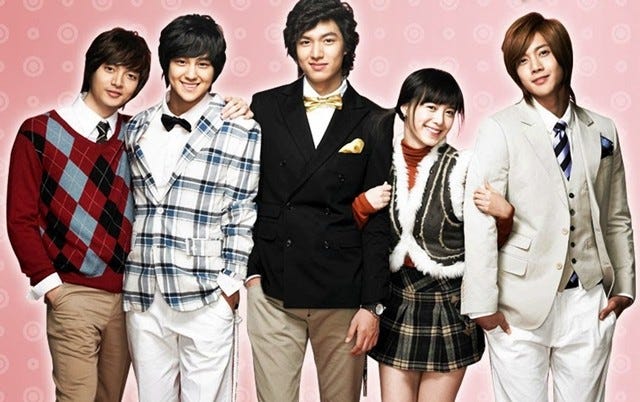
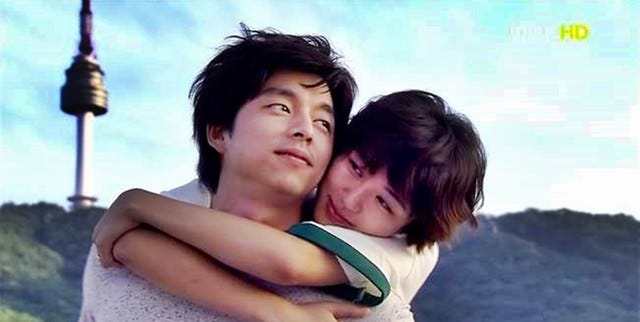
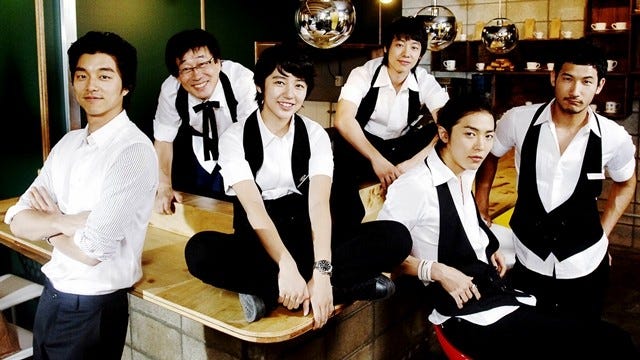
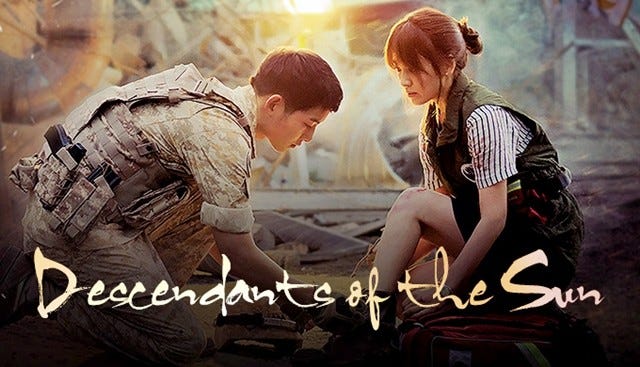
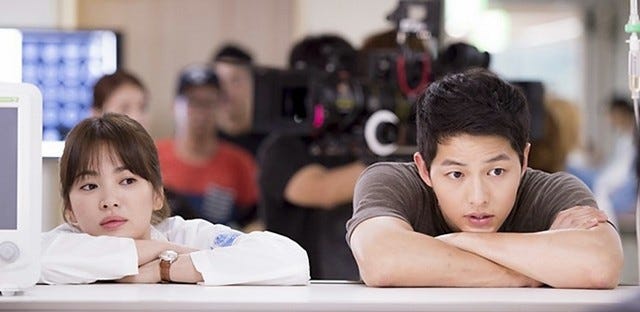
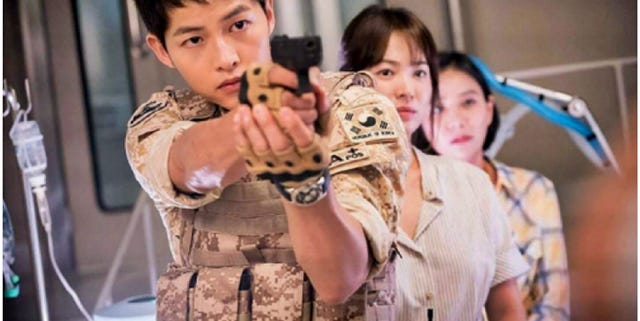
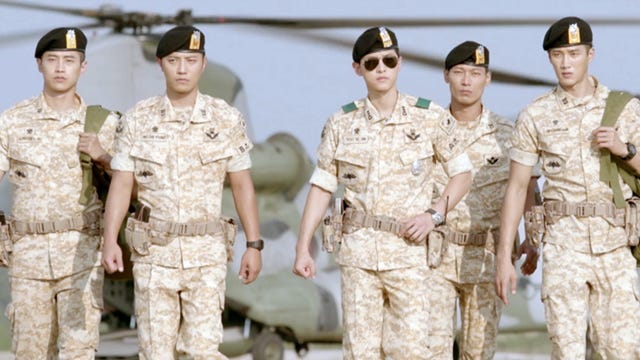

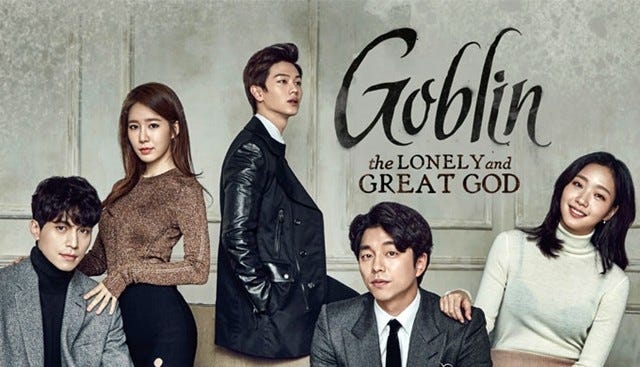
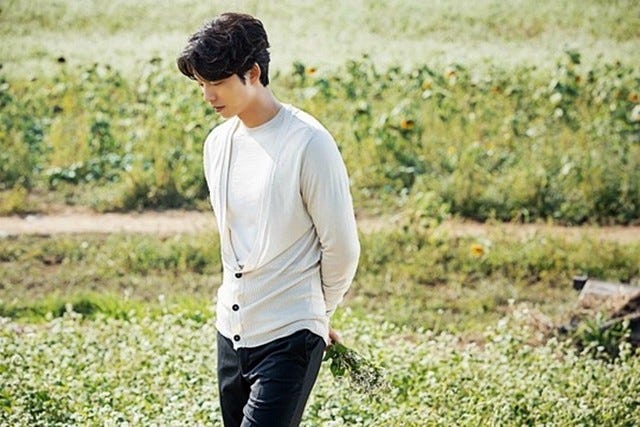
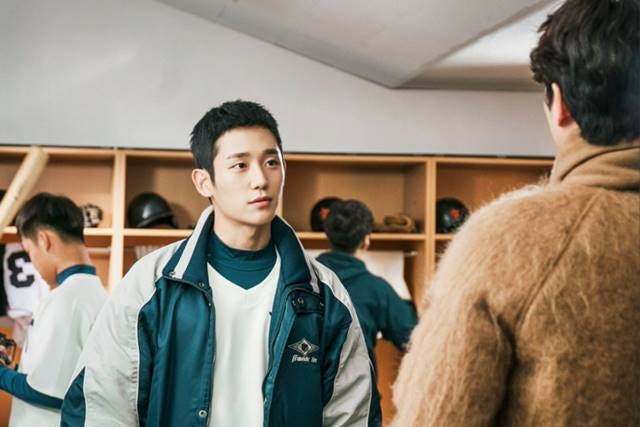


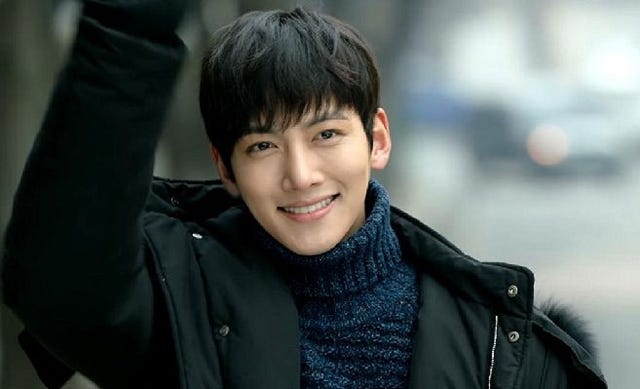
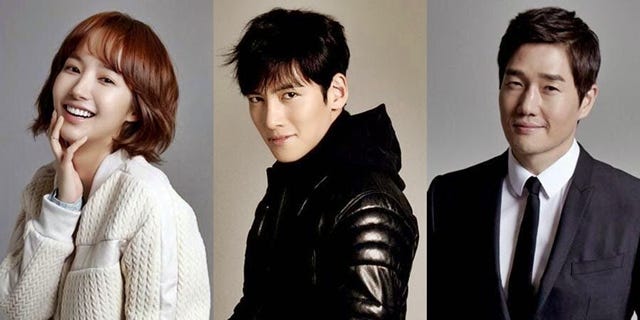
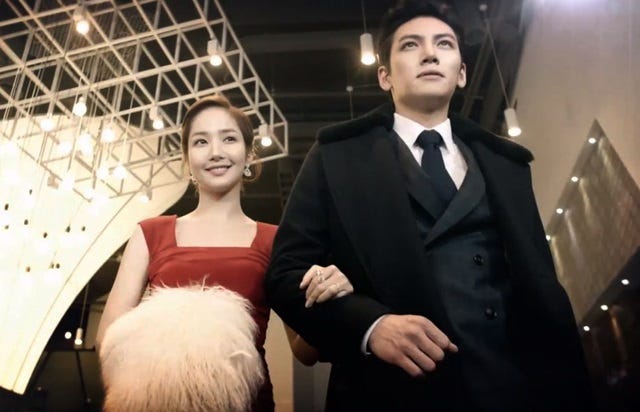
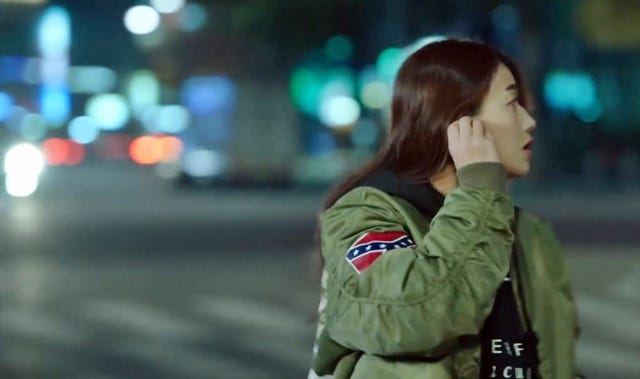
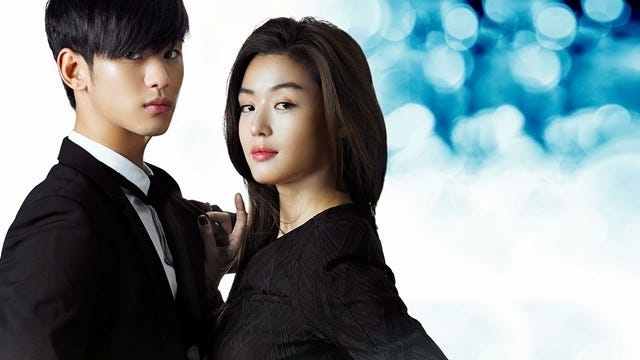
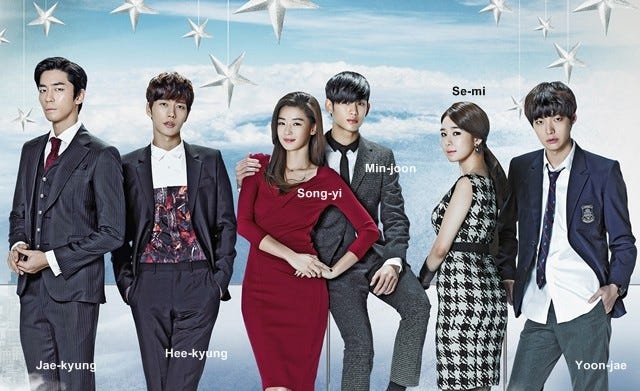
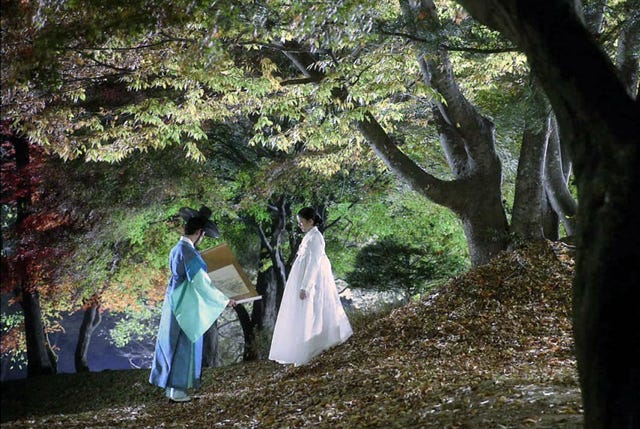
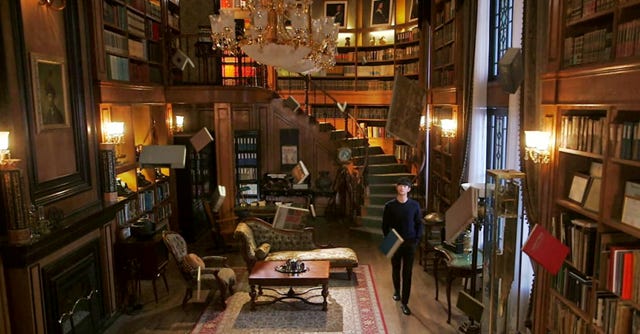
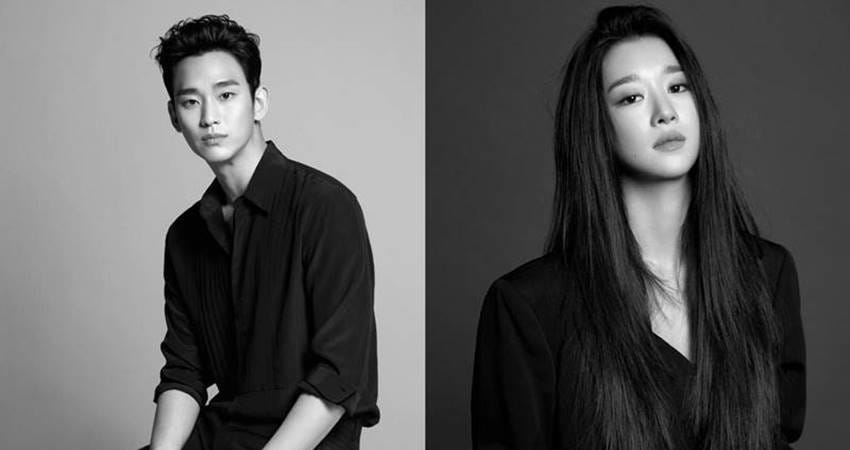
I love this column very, very much!! (Well, I love all of them.) I frequently tell people that Crash Landing on You is The Gateway Drug -- it certainly was for me! My nephew and niece were visiting us in May 2022, and our niece suggested CLOY. We watched about 6 episodes during their visit, and then I binged the rest of it on my own. And there has been no going back.
I remember feeling frantic immediately after finishing CLOY -- what's next???? And I stumbled onto some classics almost immediately -- Hometown Cha, It's Okay to Not Be Okay, Itaewon Class, What's Wrong with Secretary Kim? Then, I subscribed to Viki and found my "life dramas" -- Misaeng and Into the Ring. I count the those two among my favorite TV shows of all time -- alongside The Wire and The Americans.
And now, I am eagerly waiting for dramas -- Chief Detective 1958; thrilled that Lee Je Hoon signed on for a third season of Taxi Driver; Because I Want No Loss; even Squid Game now that Im Si Wan and Park Sung Hoon are in the cast. Completely addicted!
I'm obsessed with anything set in the Joseon Period. Rookie Historian, 100 days my prince, Jang Ok Jung Living by Love, Queens Umbrella, Captivating the King etc. My mom is 84 years old and she cannot get enough of her Kdramas. She call them her Korean Stories, the shows make her so happy and give her a reason to get up every day.